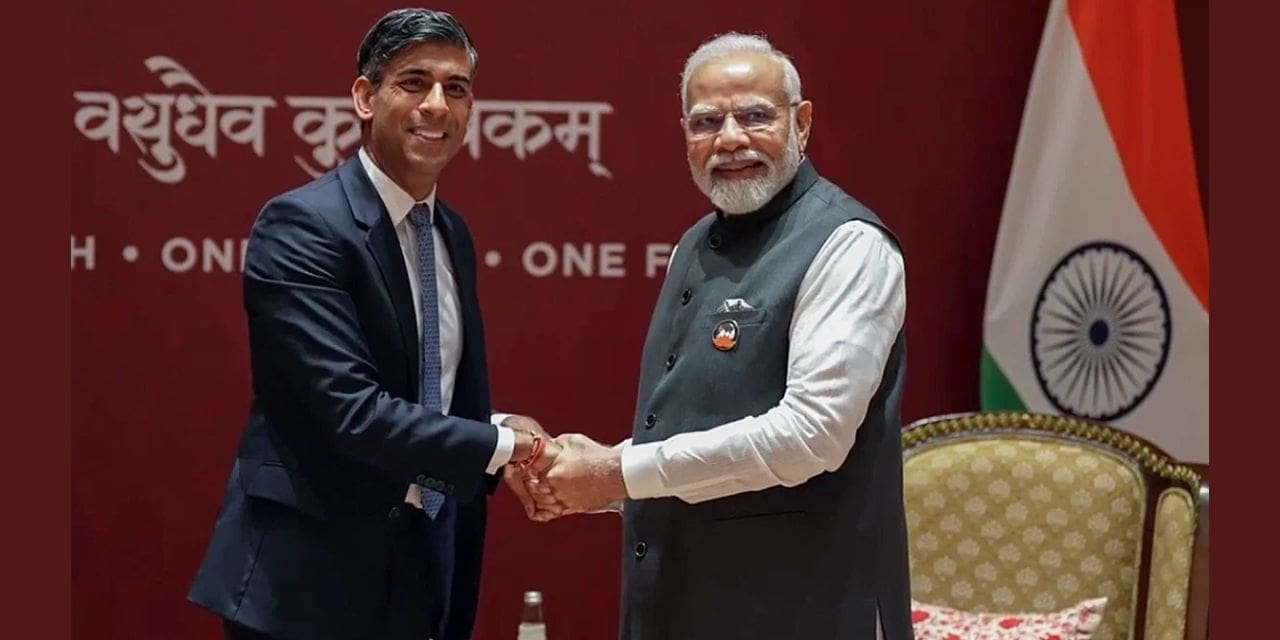Official sources say that talks between India and the UK on a Free Trade Agreement (FTA) will likely last a few more days or weeks. This would mean the deal wouldn’t be finalized and signed until after October.
The crazy activity of the last few weeks has given people hope that the talks will end soon, even though both sides have officially refused to set any limits since the earlier date of Diwali last year was missed because of changes in politics in the UK.
One Indian official, who did not want to be named, said, “The talks never had a due date.” The 13th round of talks is ongoing, and negotiations are in full swing. Intellectual property rights problems have been solved, but disagreements about rules of origin and how to deal with the service sector, especially banking services, have been resolved. We also need to settle our differences on the Bilateral Investment Treaty.
The 13th round of talks began on September 3 and is still going on, with a short break. In the first week of October, India’s trade secretary went to London to push the talks forward. With all of this going on and a team from the UK coming to India to continue the round, there were signs that a victory might be close.
British sources told the Financial Times on Wednesday from London that “talks are not where we want them to be.”
On Friday, Sunil Barthwal, the Indian commerce secretary, said, “We are negotiating tough issues that remain.”
The talks for the planned FTA between the two countries began in January 2022 and will cover 26 policy areas or chapters. He had said, “Most of the chapters are closed or are in the advanced stages of negotiations.”
Less contentious issues have been resolved, but long-lasting talks are still going on about issues that matter to India, such as giving its skilled workers from IT and healthcare better access to the UK market and letting some goods enter the market without paying customs taxes.
On the other hand, the UK wants a significant tax cut that other countries charge on things like scotch whisky, cars, lamb meat, sweets, and some candies.
Britain is also looking for more chances to sell its services in India. These services include law and financial (banking and insurance) services and telecommunications services.
A person in the business world who knew about parts of the agreement told the London-based FT that India was making it harder to get professional services like law and accounting than other modern trade deals, like the one the UK made with Australia.
During the talks, the UK has asked India to treat its service businesses like any other and give its workers more freedom to work in India.
National treatment means following the rules and laws the same way for outsiders and locals. It also means giving foreign operators the same chances as domestic ones and not doing anything that hurts them.
“Negotiators have made it very clear that they don’t see this deal as a game-changer,” the insider told FT. “Some [services] sectors haven’t gotten anything close to what they might have hoped for.”
Someone who knew about parts of the deal said that the draught deal did not seem to “break new ground” in areas like law services. However, the professional services sector had always known that it would take a lot of work for the UK to get significant changes made to parts of India’s regulatory system that are very sensitive. In the past, it has been challenging for international law companies to work in the country. The FTA and the Bilateral Investment Treaty are both being talked over by both sides. In this treaty, disagreements about settling disagreements are slowing down the talks.

